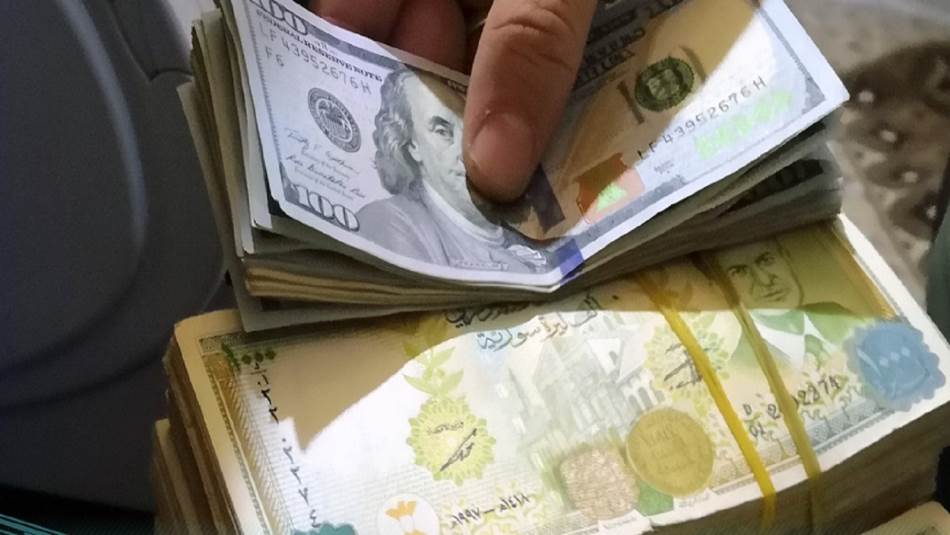The Syrian Central Bank has increased the exchange rate of the U.S. dollar against the Syrian pound by approximately 44 percent. This adjustment was communicated in a special bulletin issued for trading in banks, known as the “Banks Bulletin.” Unfortunately, this increase is expected to lead to higher prices for essential items such as food and medical supplies.
On Monday, the Central Bank released a bulletin indicating that the exchange rate of the U.S. dollar against the Syrian pound has been raised to 6,532 pounds per dollar. This represents an increase of approximately 2,000 Syrian pounds from the previous rate of 4,522 Syrian pounds.
Assad’s Advisor Accuses Former Ministers of Industry and Trade of Corruption
The Banks Bulletin is an essential tool that the Central Bank of Syria utilizes to finance vital medical and food imports at a significantly lower price than the exchange rate of the Syrian pound traded on the black market. Unfortunately, this rate increase in the bulletin means that prices will inevitably rise. Additionally, the Banks Bulletin is also used to determine the price of the customs dollar and military allowances for both mandatory and reserve services.
The recent decision by the Central Bank has resulted in an official loss of approximately 250 percent of the Syrian pound’s value since April 2022. At that time, the value of the Syrian pound in the Banks Bulletin was reduced from 1,256 to 2,512 pounds per dollar. This latest increase to 6,532 pounds per dollar further exacerbates the already dire economic situation in Syria.
According to economist Radwan al-Debs, the Syrian Central Bank’s recent decision to increase the exchange rate of the US dollar against the Syrian pound is an attempt to align the official rate with the black market rate, which is currently around 7,500 pounds per dollar. This move aims to address the deficit in the public budget and alleviate the financial burden on the regime’s government resulting from the previous discrepancy between official and black market rates. Furthermore, it is hoped that this action will help stabilize the prices of essential foodstuffs.
During an interview with Al-Modon, Debs suggested that the Central Bank’s recent decision is just one of several economic steps being taken in preparation for upcoming regional and Arab developments related to the Syrian regime. He believes that the goal is to prepare for potential economic opportunities resulting from increased trade exchanges, which have already started to emerge with the export of certain products that have contributed to stabilizing the exchange rate. This is all in an effort to absorb any potential economic challenges that may arise during the upcoming period of regional and Arab openness towards the Syrian regime.
Debs suggests that the regime is seeking to record an economic victory and export it to countries seeking to align themselves with Syria by stabilizing the exchange rate and ensuring the availability of essential goods such as food and fuel. In addition, the regime may be attempting to showcase an internal victory following the attendance of President Bashar al-Assad at the Arab summit in Saudi Arabia and the success of normalization with Riyadh and Ankara. Debs predicts that the regime may follow this up by raising salaries by a significant percentage and working to stabilize food prices, at least at their current levels.
This article was translated and edited by The Syrian Observer. The Syrian Observer has not verified the content of this story. Responsibility for the information and views set out in this article lies entirely with the author.


